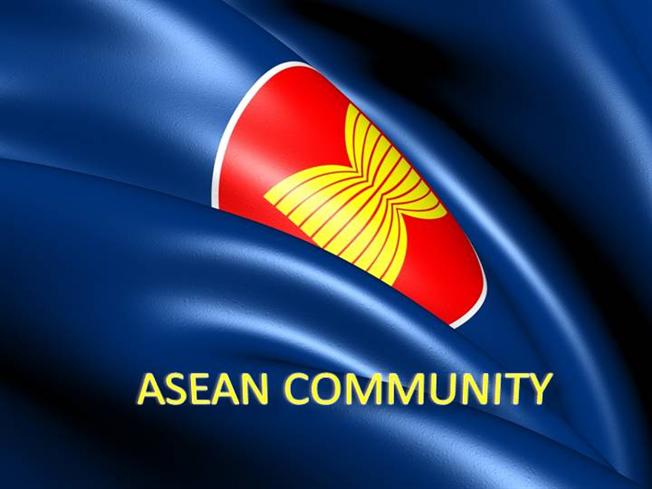Indonesia's Chairmanship of ASEAN in 2023 focuses on making ASEAN a stable and peaceful region, a dignified region that upholds humanity values and democracy. As the chair of ASEAN, Indonesia will focus on strengthening ASEAN to become a fast-growing, inclusive and sustainable economic region.

Indonesia's Chairmanship also aims to strengthen ASEAN institutional capacity and effectiveness so it can face even more difficulties in the coming 20 years. Indonesia aims to gear towards ASEAN 2045, which must be more adaptive, responsive, and competitive. All of this must be fought for in the ASEAN way, consistent with the spirit of cooperation and ASEAN’s vision and fully implementing the ASEAN Charter.
ASEAN’s vision is to realize dynamic cooperation among Southeast Asian countries in a peaceful, stable and prosperous manner. This vision is the result of the agreement of the Leaders of ASEAN countries. This vision is then realized through three pillars of ASEAN Community.

1. ASEAN Political-Security Community
This pillar supports relations in the political and security fields among ASEAN Member States. With this pillar, ASEAN Member States continue to uphold peace and avoid political and security tensions. ASEAN Head of State or Government will always adopt peaceful ways in overcoming any differences and disputes among Member States.
ASEAN Leaders also seek to create a conducive political situation, develop norms for living together, prevent conflicts among Member States, and resolve conflicts with the best mechanism. Several agreements in the political and security fields have been signed by ASEAN, such as:
● Declaration of Zone of Peace, Freedom and Neutrality (ZOPFAN) signed in Kuala Lumpur on 27 November 1971
● ASEAN Declaration on the South China Sea signed in Manila on 22 July 1972
● Declaration of ASEAN Concord signed in Bali on 24 February 1976
● Treaty of Amity and Cooperation in Southeast Asia (TAC) signed in Bali on 24 February 1976
● Treaty of Southeast Asia Nuclear Weapon-Free Zone (SEANWFZ Treaty) signed in Bangkok on 15 December 1997
● Declaration of ASEAN Concord II (Bali Concord II) signed in Bali on 7 October 2003
● Bali Concord III signed in Bali on 17 November 2011
2. ASEAN Economic Community
This pillar supports achieving the ultimate goal of economic cooperation between Member States, namely a stable, prosperous and competitive economic region. This is done by implementing free flow of goods, services, investment and capital among ASEAN Member States, while at the same time trying to reduce poverty and minimize socio-economic disparities.
Therefore, a strategy that can unite the potentials in each Member States is needed in order to increase ASEAN's economic competitiveness. The agreements signed include the followings:
● Accelerating the integration of several sectors of economic activity, namely the air transport sector, agriculture-based production, automotive, e-commerce, electronics, fisheries, health services, rubber production, textiles and clothing, tourism, and wood-based production
● Facilitating the mobility of entrepreneurs, skilled and talented workers
● Updating mechanisms and steps that can strengthen the implementation of the ASEAN Free Trade Area or AFTA, the ASEAN Framework Agreement on Services or AFAS, and the ASEAN Investment Area or AIA
● Strengthen mechanisms within ASEAN's institutions.
3. ASEAN Socio-Cultural Community
This pillar is a partnership of Southeast Asian countries that care for each other and form a common identity. The aim is to foster cooperation in the field of social development so as to improve the standard of living of disadvantaged groups in society. The ASEAN Socio-Cultural Community seeks to improve the quality of human resources in ASEAN, reduce unemployment, eradicate poverty, reduce social inequality, and increase equality in economic growth.
The efforts that have been made by ASEAN include the following:
● Social welfare, family and population program
● Health care program for the elderly
● HIV/AIDS treatment program
● Occupational safety and health network.
● Program for preparing young people to face globalization
● Network of 17 universities in ASEAN Member States
● Student exchange between ASEAN Member States and youth forums
● Annual cultural week, youth camp and ASEAN quiz
● Media exchange program
● Framework for Environmentally Sustainable Cities development
● Agreement on handling transboundary pollution.
The three pillars of ASEAN cooperation will continue to be strengthened in the future, especially now that Indonesia holds ASEAN Chairmanship 2023. This ASEAN Chairmanship brings continuity to the agenda of Indonesia's G20 Presidency. ASEAN as a cooperation forum that has been running for a long time is expected to be able to respond to future issues and challenges through these three pillars.